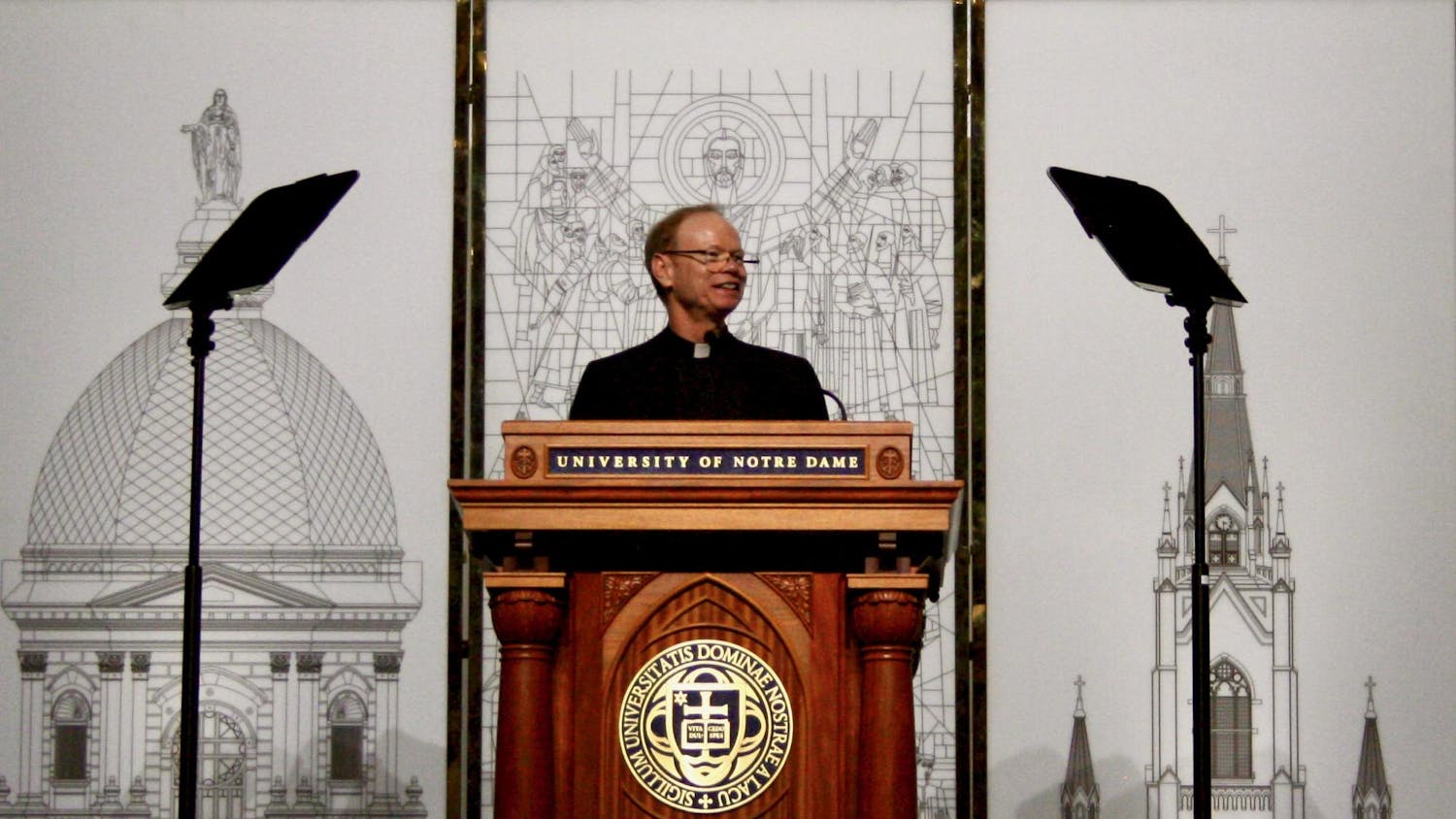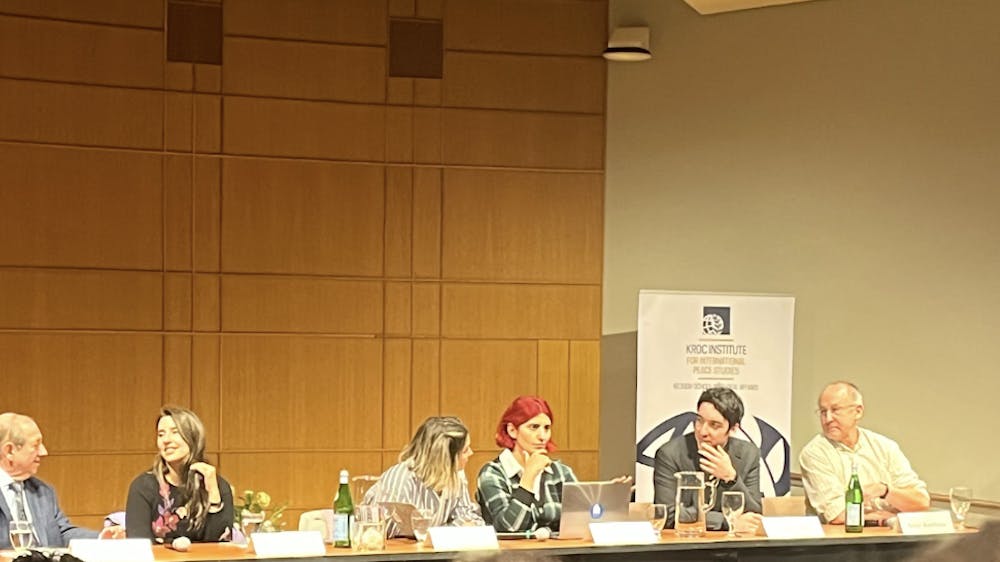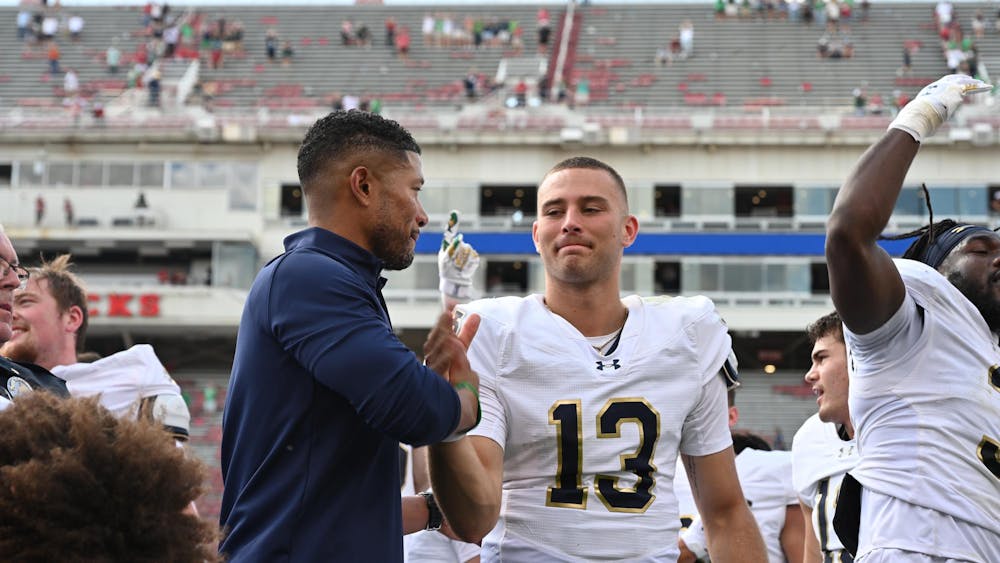Saint Mary’s students partook in a roundtable discussion to reflect on women's limited depiction in the media after a public screening of the 2011 documentary "MissRepresentation" in the Student Center Wednesday evening.
Jessica Richmond, a senior social work and political science major, facilitated the screening and following discussion.
Richmond said she applied for the Dooley Grant last spring in order to screen the film.
“The Dooley Grants are for Saint Mary’s students who find their passion in justice education issues,” Richmond said. “I am interested in redefining feminism and eliminating the derogatory persona it’s associated with.”
Richmond said she watched "MissRepresentation" for the first time in one of Dr. Sonalini Sapra’s political science classes and couldn’t get enough.
“I’ve probably watched it 10 times since,” she said.
Richmond said she felt compelled to share the film and its message with as many members of the Saint Mary's community as possible.
“My goal is to educate people to simply think about this issue,” Richmond said.
Bri O’Brien, a junior also awarded the Dooley Grant for a project regarding ethical consumption, said just thinking about feminism seems to be an obstacle even some women struggle to overcome.
“[The misogynist mindset] seems inherent,” O’Brien said. “Are [people] aware that they are embracing patriarchy?”
O’Brien said this embrace is especially apparent in women’s perceptions of other women in political power.
“Look at Hillary and Sarah Palin and how they are labeled as the ‘bitch’ and ‘the dumb one,’” O’Brien said. “What’s so crazy about seeing women in power?”
Sophomore Emma English said men are more likely to discredit women when they classify the physical aspects of the female sex — periods and pregnancy — as handicaps.
Junior Anna Gainey said both men and women are hormonal but a violent surge in testosterone is more socially acceptable than premenstrual syndrome (PMS).
“If boys act uninhibited, they’re told ‘boys will be boys,’” Gainey said. “Boys are excused from doing impulsive things. If women do something impulsive they are deemed incompetent.”
English said the media’s influence exacerbates the double standard on a personal and public level.
“You can’t be what you can’t see,” English said. “We grow up thinking of certain jobs — firefighter, policeman — as masculine careers.”
Sophomore Emily Rush said she wanted to know if the United States is the only country struggling with the media’s portrayal of women.
“I wonder what our standard of beauty would be if Hollywood was in another country?” Rush asked.
Gainey said depictions of hyper-effeminate women in anime suggest that patriarchy pervades Japan, or at least Japanese culture.
“All the girls in manga look like they are literally eight years old,” Gainey said. “And they’re all drooling over men who are at least 18.”
Richmond said this plotline was emblematic of the misogynistic idea that women are accessories to men.
“Women are ornamental,” she said. “Women have forever been seen as an ornamental piece that belongs to men.”
Richmond said women who claim the feminist movement asks for “too much, too fast, too soon” perpetuate oppression onto their own gender.
Richmond said she looks forward to "The Mask You Live In," another documentary set to be released in 2015 that explores the patriarchal media’s affect on boys and men in American society.
“I doubt that Wabash, an all boys school, discusses these issues,” English said. “They should be.”
Read More
Trending









